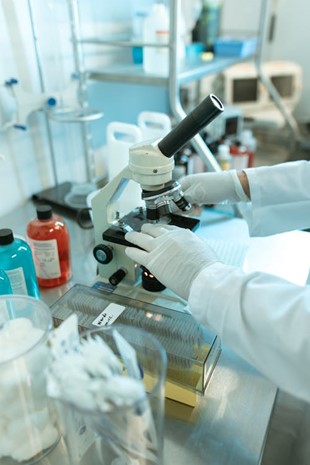Gut Feelings: Researching Parkinson’s Disease’s Gut-Origin Theory
Parkinson’s disease has long been associated with the brain, particularly the loss of dopamine-producing cells in the substantia nigra, a region of the brain responsible for motor control. However, in recent years, an intriguing hypothesis has emerged: the origins of Parkinson’s may actually lie in the gut. This groundbreaking idea has captured the attention of researchers and sparked new avenues of investigation, offering hope for a better understanding of this debilitating disease. In this blog post, we will explore the emerging concept of the gut-brain connection in Parkinson’s disease and the ongoing research that aims to provide more concrete evidence for this theory.
The Gut-Brain Connection
The gut-brain connection is a complex and multifaceted relationship that has garnered significant attention in the scientific community. It encompasses the bidirectional communication between the central nervous system (CNS) and the enteric nervous system (ENS) within the gastrointestinal tract. This communication is facilitated by a:
- network of neurons
- neurotransmitters
- diverse community of microorganisms known as the gut microbiome
The Gut and Parkinson’s Disease
Recent research suggests that the gut may play a pivotal role in the development of Parkinson’s disease. Several key findings have contributed to this hypothesis:
- α-Synuclein Aggregates: α-synuclein is a protein that plays a central role in Parkinson’s pathology. Abnormal clumps of α-synuclein, known as Lewy bodies, are a hallmark of the disease. Researchers have discovered that these aggregates can start forming in the gut and then spread to the brain, possibly triggering Parkinson’s symptoms.
- Gut Microbiome Alterations: Studies have shown that individuals with Parkinson’s disease often have imbalances in their gut microbiomes. These imbalances could potentially contribute to the progression of the disease and the worsening of motor symptoms.
- Vagus Nerve Involvement: The vagus nerve, a long cranial nerve that connects the brain to the gut, is believed to be a conduit for α-synuclein to travel from the gut to the brain. Research has indicated that it may be a crucial player in the gut-brain axis associated with Parkinson’s disease.
Ongoing Research
Researchers are actively pursuing studies to provide more concrete evidence of the gut-brain connection in Parkinson’s disease. Some ongoing investigations include:
- Clinical Trials: Clinical trials are being conducted to explore the potential therapeutic benefits of modulating the gut microbiome. By manipulating the composition of gut bacteria, researchers aim to mitigate Parkinson’s symptoms and slow disease progression.
- Neuroimaging Studies: Advanced neuroimaging techniques are being used to visualize the spread of α-synuclein aggregates in the gut and their subsequent journey to the brain. This can help confirm the hypothesis that Parkinson’s disease may originate in the gut.
- Animal Models: Researchers are utilizing animal models to recreate the gut-brain axis in Parkinson’s disease. These models help scientists understand the mechanisms by which gut changes contribute to neurodegeneration.
Click here to see the full scientific article from The Washington Post.
As our understanding of the relationship between the gut and Parkinson’s disease continues to evolve, it opens new possibilities for early diagnosis, prevention, and innovative therapies. The journey to proving the gut’s role in Parkinson’s may be long and challenging, but the hope it offers to those affected by this disease is immeasurable. Parkinson’s patients and their families can take solace in the fact that science is making great strides toward unraveling the mysteries of this condition and finding new ways to treat and potentially prevent it.
Enhancing our daily routine with Florassist GI supplements can significantly contribute to our well-being. At Asher Longevity Institute, we provide access to this exceptional supplement. Florassist GI supports the growth of beneficial bacteria, optimizes digestion, and effectively eliminates harmful bacteria in the gut.




